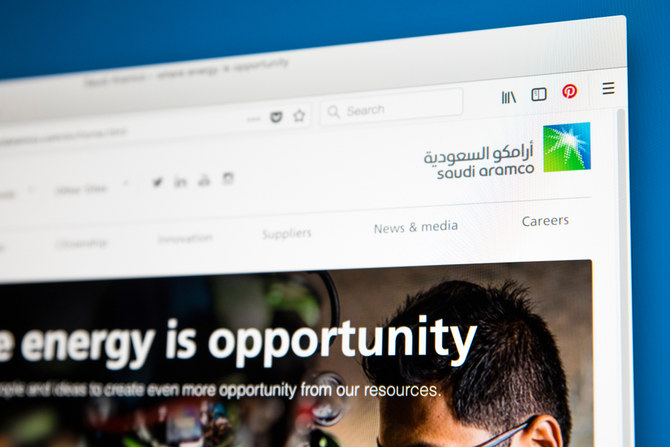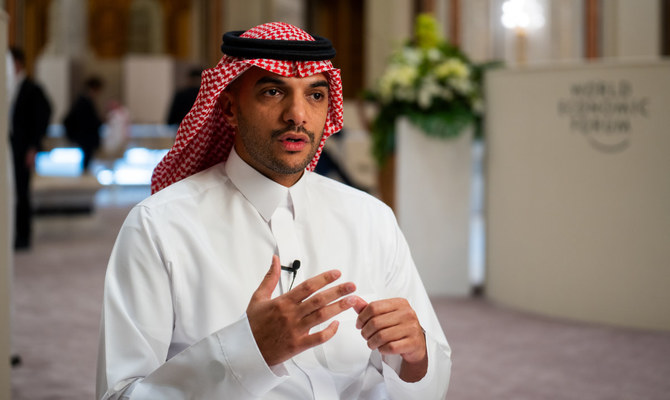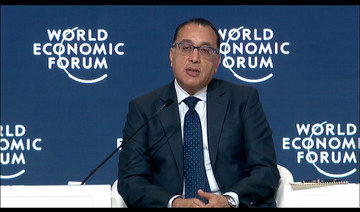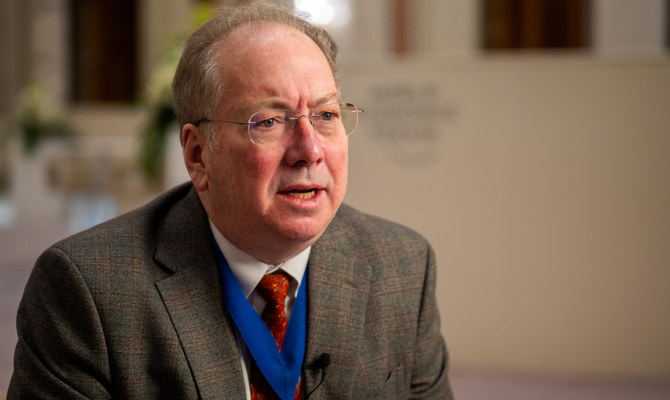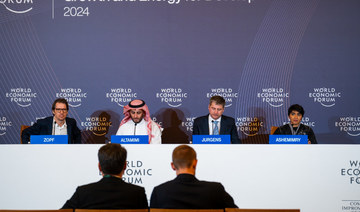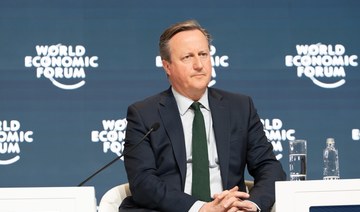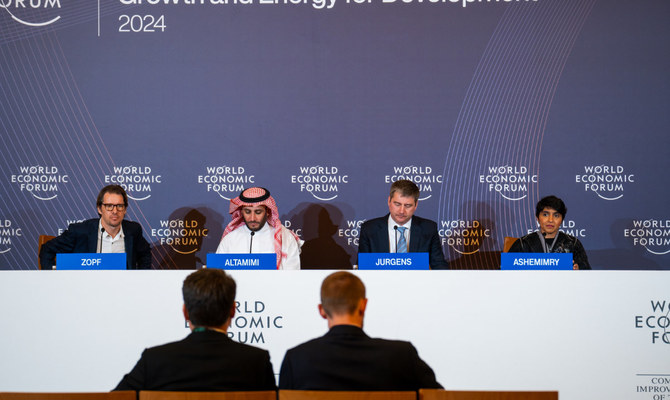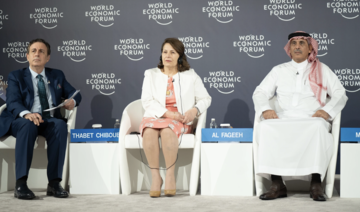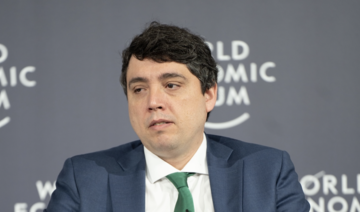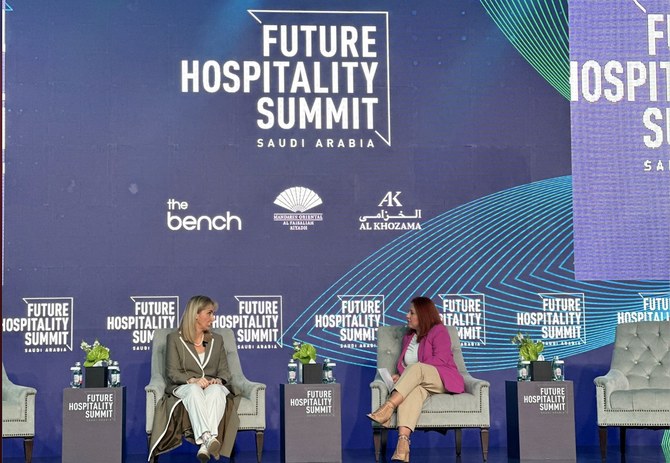LONDON: The focal point of Saudi Aramco’s forthcoming In-Kingdom Total Value Add Forum will be the company’s initiative, launched in 2015, to further develop a local supply chain.
In Aramco’s own words, the intention is to “transform and diversify the Kingdom’s economy through partnership and collaboration, creating high-skilled jobs for the Saudi population (and building) a resilient economy for the future.”
The IKTVA program opens many opportunities for both companies and workers in Saudi Arabia, and reflects the objectives of the Kingdom’s Vision 2030 — but what of Aramco itself?
As the world’s leading crude oil supplier, with an output of some 10 million barrels per day, Aramco currently has a daily turnover of SR32.6 billion ($8.7 billion). That adds up to some $317.5 billion per annum, up from gross revenue of $205 billion and net revenues of $49 billion in the financial year 2020 — the last full year reported.
With an income of such magnitude, Aramco would seemingly have little to worry about.
However, broader global issues require Aramco to come up with innovative strategies to overcome both present and future headwinds.
The 2021 United Nations Climate Change Conference, better known as COP26, articulated an “anti-oil” sentiment held by many countries, with a broad consensus to transition the global economy away from fossil fuels in favor of more environmentally friendly energy sources including solar, wind, tidal and geothermal.
There is a shift, which began in earnest by Tesla and now includes legacy auto manufacturers such as VW, Volvo and Mercedes, from petrol/diesel engines to battery-powered electric vehicles. This trend is growing at an exponential pace, with Forbes reporting that almost 20 percent of cars purchased in China in the fourth quarter of 2021 were electric. This is likely the shape of things to come for the rest of the world.
These developments put Aramco in the spotlight as a giant of the carbon fuel sector, alongside a possible danger of becoming the world’s leading supplier of a gradually redundant commodity.
However, the reality behind the headlines is that global oil demand is actually on an upward tangent, as the world emerges from an industrial dip caused by the two-year COVID-19 pandemic.
According to a report from the US Energy Information Administration released on Jan. 11: “Rising economic activity and the easing of pandemic-related restrictions on other activities resulted in global oil consumption rising by 5.5 percent in 2021 from 2020.”
The same report goes on to state that with oil consumption outpacing production, the fourth quarter of 2021 saw significant increases in prices of the commodity, with Brent crude oil spot increasing from an average of $43 per barrel in the third quarter of 2020 to an average of $79 per barrel in the fourth quarter of 2021.
Current oil prices are even higher, with the various grades of Arabian crude hovering between $87 and $89 per barrel.
Opinion
This section contains relevant reference points, placed in (Opinion field)
The EIA predicts that total world petroleum consumption of 96.9 million barrels per day in 2021 will slightly increase to 100.5 mbpd in 2022. Is that level of demand sustainable? Aramco, for one, believes the answer is yes.
“(Energy) alternatives are nowhere near ready to carry a big enough load, so new and existing energy sources will need to operate in parallel for a long time,” Aramco CEO Amin H. Nasser declared at the World Petroleum Council Congress, held in Houston in December 2021.
Nasser went on to say that while “Aramco is committed to a net-zero economy … there are still no truly viable alternatives to conventional fuels in aviation, shipping, and even trucking.”
He added: “Oil and gas will be needed for decades to come, and accelerating the reduction in their emissions is a strategic and urgent necessity for climate goals to be met. We are not short of opportunities, such as producing lower carbon products like blue hydrogen and blue ammonia; developing more efficient and lower emission internal combustion engines; and making the Circular Carbon Economy that G20 world leaders endorsed last year a reality.”
In short, Aramco seeks to maintain its dominant position in the global oil sector while aiming to emerge as a future leading producer of clean fuels — a two-pronged approach that is evident in several recent deals in both Europe and Asia.
With regards to oil supply, in the past fortnight Aramco acquired a range of assets from Poland’s state-owned energy corporation Orlen PKN, including a major oil refinery and hundreds of petrol stations, in a deal worth $288 million. A contract was also signed for Aramco to supply Orlen with 200-337,000 barrels of oil per day, adding more purchases to those agreed earlier.
In terms of “new” energy, Aramco has also recently entered into agreements with two large South Korean entities — Korea Electric Power Corporation and the S-Oil Corporation — to conduct feasibility studies for the future supply of blue hydrogen, a petrol substitute with far lower carbon emissions.
As Saudi Aramco balances these competing global priorities, it is simultaneously playing an active role in the diversification of the Saudi economy — ironically, away from a dependence on oil and its derivatives, and with an emphasis on small-to-medium sized enterprises as opposed to major conglomerates.
The company has a lot on its plate and the IKTVA Forum will no doubt offer a platform to further clarify its strategy and philosophy going forward.




